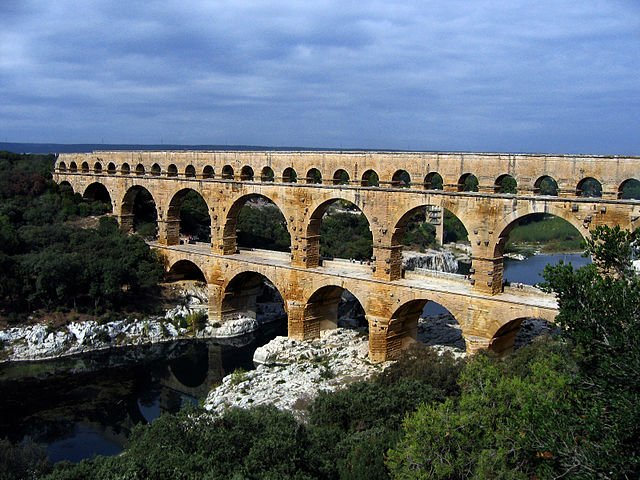Orthogonal economy

Economic systems pictured as opposites of each other, communism and capitalism, have surprisingly much in common. One is centralized by design, the other evolves into the least possible number of big entities, and ultimately, by developing connections to the State, ends up in the same place. Both waste resources and have significant amount of internal competition on all levels of hierarchy. One can't create abundance, the other tries, but fails miserably - it may create excessive amount of food for example, but model of distribution makes half of the world starve, and the other (much "lesser" half) to have obesity-related health problems. And besides capitalism can't really stand real abundance - if something is available freely (that's what abundance should mean) no one can make profits.
Both systems tend to increase control over human population and environment.
And last but not least, both systems tend to define themselves as good as opposed to the other, evil one. Like two siblings who hate each other but can't live without. Or maybe like a married couple with the same attitude. The latter metaphor is better, because we can picture them with a child, which is growing older, wiser and is starting to see beyond words and parental advises, and is fed up with their nonsense.
An inquiring mind should ask whether what can be seen is all there is to it.
Economic systems, please correct me if I'm missing something, generally fall into (or between) the following categories:
1. Means of production private, product private: capitalism,
2. Means of production private, product public: socialism,
3. Means of production public, product public: communism.
Air, water, food, shelter, health, the lowest levels of Maslow's pyramid. The question is whether they have to be provided by one of the three systems. One already isn't, never was:the air (we're doing a great job trying to destroy it though). Water? We used to have clean rivers, and then Roman aqueducts proved to be really useful. They did not come for free, like air, and they did require maintenance, but by todays standards they were, and still are, a wonder. What could we achieve now, with modern technology, if our primary concern was public interest? I mean, not because there is money to be made, or because the Central Committee says so, but because people of, say, small city of Carcosa wanted the luxury of running water in their homes? If private company does it, it's for profit and features as endurance, maintainability and general quality are secondary concerns. It's exactly the same with company owned by government. What both private and state-owned companies have in common is that they are not going to care as much as direct recipients of the service. Not to mention seeing water supply in wider context than just what is required for the job to be done, signed off and paid for. Where the water comes from? Where does it go? Can it be managed better? Polluted less? Used more efficiently? What would abundance of water really mean? These are not trivial questions, and no economic system gives it more thought than necessary. If someone cares, it's the ordinary people, hobbyists, scientists, people who care not because they are paid to do it, or they have orders from Central Committee.
This post has been ranked within the top 50 most undervalued posts in the first half of Mar 29. We estimate that this post is undervalued by $2.94 as compared to a scenario in which every voter had an equal say.
See the full rankings and details in The Daily Tribune: Mar 29 - Part I. You can also read about some of our methodology, data analysis and technical details in our initial post.
If you are the author and would prefer not to receive these comments, simply reply "Stop" to this comment.